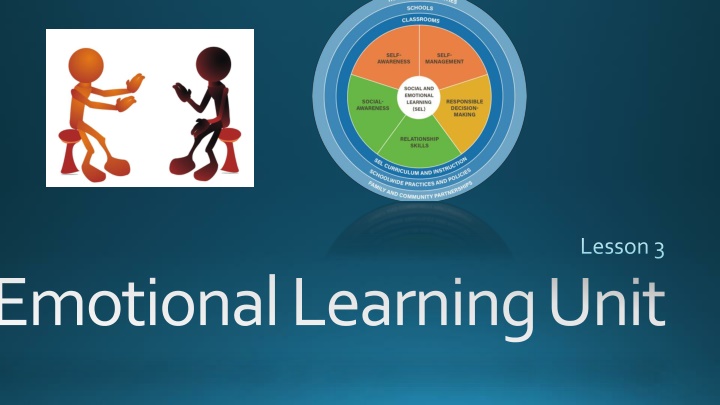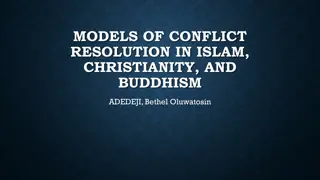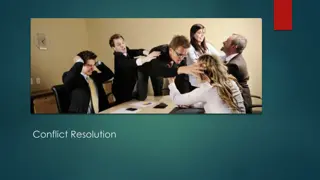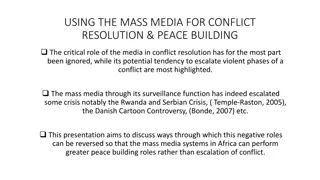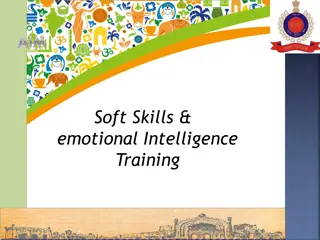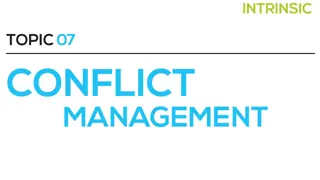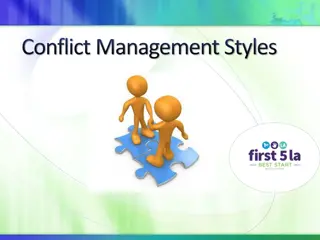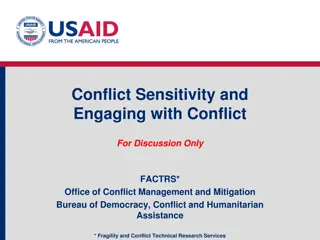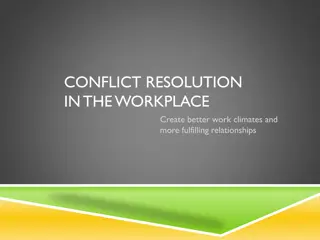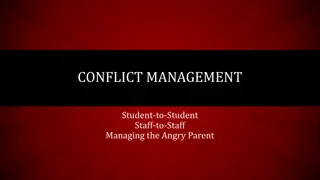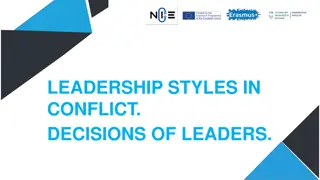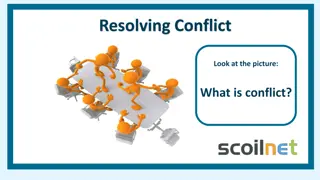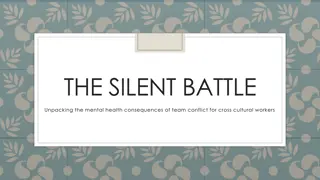Enhancing Relationship Skills and Conflict Resolution in Social Emotional Learning
Explore important topics in social emotional learning such as different forms of communication, social awareness, growth mindsets, empathy, and relationship skills. Engage in activities to differentiate between passive, aggressive, and assertive communication styles, understand the importance of empathy and social engagement, and delve into conflict resolution strategies.
Download Presentation

Please find below an Image/Link to download the presentation.
The content on the website is provided AS IS for your information and personal use only. It may not be sold, licensed, or shared on other websites without obtaining consent from the author.If you encounter any issues during the download, it is possible that the publisher has removed the file from their server.
You are allowed to download the files provided on this website for personal or commercial use, subject to the condition that they are used lawfully. All files are the property of their respective owners.
The content on the website is provided AS IS for your information and personal use only. It may not be sold, licensed, or shared on other websites without obtaining consent from the author.
E N D
Presentation Transcript
Lesson 3 Social Emotional Learning Unit
Objectives 7.1t Differentiate between passive, aggressive, and assertive communication. Relationship Skills- Communication Skills
Review Social-Awareness Social-awareness The ability to take the perspective of and empathize with others, including those from diverse backgrounds and cultures. The ability to understand social and ethical norms for behavior and to recognize family, school, and community resources and supports. (CASEL.org)
Review Social-Awareness Growth mindsets the belief that students learn more or become smarter if they work hard and persevere. Students may learn more, learn it more quickly, and view challenges and failures as opportunities to improve their learning and skills. Empathy- the feeling that you understand and share another person's experiences and emotions; the ability to share someone else's feelings.
Relationship Skills Relationship skills The ability to establish and maintain healthy and rewarding relationships with diverse individuals and groups. The ability to communicate clearly, listen well, cooperate with others, resist inappropriate social pressure, negotiate conflict constructively, and seek and offer help when needed. (CASEL.org) Introduce the sub-competencies Communication Social Engagement Relationship building Teamwork
Conflict Resolution, Part I. Four types of attitudes Aggressive I win/You Lose Passive You win/I Lose Passive-Aggressive I lose/You Lose Assertive I win/You Win
Conflict Resolution, Part I: The Sort Each group gets one packet. Each packet contains a paper with the following headings Aggressive Passive Passive-aggressive Assertive The packet also contains several attitudes that represent each of the four types of communication. Sort the quotes under the appropriate heading and reflect on Which attitude is best for resolving conflict so the conflict stays resolved? Which attitude is the hardest to deal with and why? Which attitude is the hardest one to keep if you are in a conflict? Why?
Conflict Resolution, Part II: The Prompts Each group receives conflict resolution prompts. Work to get to a win/win resolution If you don t know what to do, put your red circle up; if you have a question, put the yellow circle up; if you understand and don t need any help, put the green circle up When finished, present with the goal of providing Win/Win resolution to the conflict
End of class review 1. What are Relationship Skills? 2. What are the four attitudes about conflict resolution? 3. Why is getting to Win/Win a good idea? 4. How will you use these skills in your personal life?
Exit ticket How will this lesson help you improve your communication skills?
